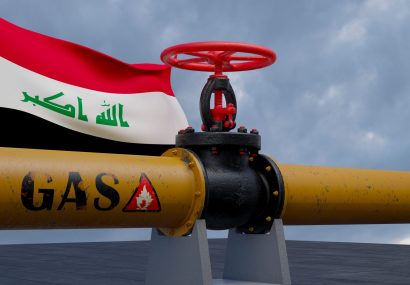Future of Iran’s Gas Exports to Iraq in Question
TEHRAN (Iran News) Seyyed Hamid Hosseini stated, “I believe the Iraqi government will negotiate and offer concessions to the U.S., extending their exemption quietly.”
Responding to reports about the U.S. cancelling Iraq’s exemption for buying gas from Iran, Hosseini clarified that this does not mean Iraq cannot receive gas from Iran. He noted, “The reality is that the receipt of gas and electricity is not included in the sanctions. The exemption was intended to allow Iraq to pay Iran for gas, and that exemption has presumably been lifted now.”
Hosseini emphasized that whether Iran continues its gas exports depends on decisions made by the Iranian government, particularly in light of the U.S. lifting the exemption for payments. He expressed that Iran is bound by existing contracts to export gas to Iraq, but currently lacks surplus gas to meet the annual demand of 20 billion cubic meters.
He pointed out the significant dependency of Iraq on Iranian gas, highlighting that Iraq recently reported losing 8,000 megawatts of electricity generation due to reduced gas supplies from Iran, leading them to burn high-sulfur diesel or heavy fuel oil, which has significantly increased air pollution in the country.
Hosseini also referenced statements from Iraq’s Prime Minister, Mohammed Shia’ al-Sudani, indicating that Iraq will continue to need Iranian gas until 2028.
He suggested that Iraq would negotiate with the U.S. for a discreet extension of its exemption from sanctions.
Regarding a trilateral gas agreement between Iran, Iraq, and Turkmenistan that was intended to pass through Iran, Hosseini explained that while the agreement was signed, it has not been realized due to difficulties in payment conditions set by Turkmenistan.
According to ILNA, the U.S. government has officially canceled the exemption allowing Iraq to import electricity and gas from Iran as part of new sanctions against Tehran.
Prime Minister al-Sudani has requested that the U.S. maintain Iraq’s exemption from these sanctions until alternative solutions for gas importation are established. He affirmed that Iraq envisions completing its gas imports by 2028, achieving energy independence.
Additionally, al-Sudani noted that Iraq has begun enhancing energy ties with neighboring countries as part of a broader regional cooperation strategy.
This report underscores the complex dynamics of energy dependencies and geopolitical negotiations, particularly in the context of U.S. sanctions and regional energy security.
- source : IRAN NEWS ECONOMIC DESK






























